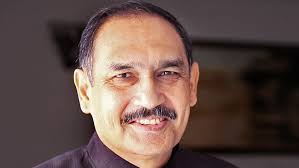
Ayushman Bharat's Expansion for Senior Citizens: Dr. Harsh Mahajan Highlights Benefits and Challenges for Healthcare Providers
The recent expansion of the Ayushman Bharat Pradhan Mantri Jan Arogya Yojana (AB PM-JAY) to include senior citizens aged 70 and above marks a critical step in advancing India’s healthcare infrastructure. This development brings an additional 6 crore individuals from over 4.5 crore families into the scheme, providing essential health support to a significant portion of the elderly population. Under this new initiative, each senior citizen will receive a health card, granting them easier access to the scheme’s benefits, which include health coverage of up to ₹5 lakh per family annually.
This expansion addresses a growing need for specialized geriatric care as India’s elderly population continues to increase. By offering coverage that can alleviate the financial burden of medical expenses, the government is helping millions of families gain access to critical healthcare services without facing overwhelming costs.
However, Dr. Harsh Mahajan, Chair of the FICCI Health Services Committee and Founder of Mahajan Imaging & Labs, points out that this expansion comes with its share of challenges, particularly concerning the sustainability of the scheme for smaller and medium-sized hospitals. He highlights that these institutions often work with limited resources and could face difficulties accommodating the larger patient base—especially since senior citizens tend to require more intensive medical care.
“The inclusion of senior citizens under the Ayushman Bharat scheme is a landmark achievement, but expanding the beneficiary base by such a large margin introduces operational challenges for smaller hospitals,” Dr. Mahajan notes. “Many of these hospitals are already operating on thin margins, and an increased influx of elderly patients could put a significant strain on their resources.”
The success of this expansion, according to Dr. Mahajan, will depend largely on ensuring that reimbursement rates under the scheme accurately reflect the actual costs incurred by healthcare providers. Delayed payments or insufficient reimbursements could lead to cash flow disruptions, which may prevent hospitals from maintaining the quality of care necessary for senior citizens. This, in turn, could deter smaller hospitals and clinics from participating in the program, reducing the accessibility of healthcare services for the elderly.
Dr. Santy Sajan, COO of Paras Health, echoes these concerns, emphasizing that the government’s initiative is a commendable step, but the practical implementation requires attention. “The government’s decision to expand the Ayushman Bharat scheme to include senior citizens is much-needed,” he says. “As India’s senior population grows, the demand for geriatric care increases, and this expansion is a timely response to that need. However, for this initiative to be truly effective and sustainable, reimbursement rates must remain fair, and payments need to be timely. Smaller hospitals and clinics play a crucial role in delivering care, and it’s vital that they are supported to maintain the quality of care our elderly citizens deserve.”
The inclusion of senior citizens under Ayushman Bharat is a significant milestone in India’s healthcare journey, yet the success of the expansion hinges on resolving the financial and operational challenges that healthcare providers may face. By ensuring fair reimbursements and timely payments, the government can safeguard the scheme's sustainability and enable hospitals, large and small, to continue providing high-quality care to the elderly population.